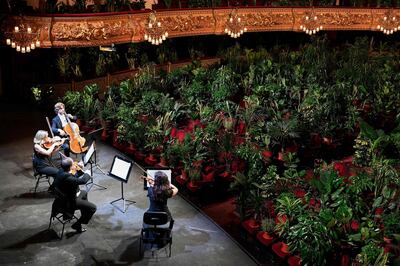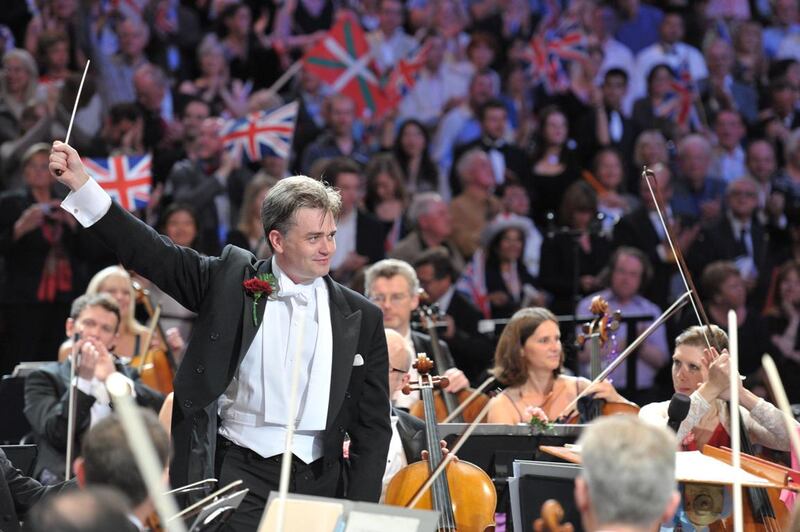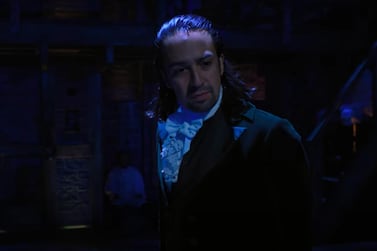The show will go on for one of the world's biggest music festivals.
BBC Proms, a classical music concert series, normally held at London's Royal Albert Hall, will take on a new hybrid model with virtual and physical shows.
On July 3, the event's organising committee said the programme for its 125th anniversary series of concerts will feature performances from a range of BBC classical and choral orchestras, in addition to screenings of previous concerts selected from its vast archives.
All shows will be broadcast on the UK's BBC Four television channel, Radio 3 and the BBC's online platform, iPlayer.
While the full programme will be announced soon, festival organisers revealed that the festival, beginning on Friday, July 17, will kick off with a virtual concert of the BBC Symphony Orchestra performing "a mash-up" of Beethoven's nine symphonies. The physical concerts are planned for Friday, August 28, with the BBC Symphony Orchestra performing under the baton of Finnish conductor Sakari Oramo.
The closing concert, dubbed Last Night at the Proms, on Saturday, September 12, will have the orchestra joined by South African soprano Golda Schultz.
Regarding its opening night show, Oramo told the BBC that the evolving nature of the pandemic meant he was working on "four different options" for how to stage the concert.
“We're dealing with constantly changing regulations," he said. "The advice on how many players we can have, whether we can have singers, whether there are restrictions to certain sections like the wind or brass, has all been – to put it mildly – slightly unclear.
"I completely understand it. I don't find it strange that there's a lot of uncertainty going on. But of course the number of players we can have, and the distances we need to have between players, will affect the programme greatly."
To respect social distancing safety measures on stage, BBC Proms director David Pickard said the number of players on stage will be reduced significantly.
"We have to be practical, which means we're talking of orchestras Mozart and Beethoven size rather than Mahler and Shostakovich size," he said. "That's just a fact."
The classics are back
Regardless of the format, the return of the BBC Proms is another sign of the revival of the international classical music industry, amid the pandemic.
Last week, Lebanon's Baalbeck Festival announced it will host a concert to be streamed from its historic site. Taking place at the foot of The Temple of Bacchus on Sunday, July 5, at 10pm, UAE time, the Sound of Resilience concert will feature The Lebanese Philharmonic Orchestra and range of choirs as they perform together under the baton of maestro Harout Fazlian.
The event will be streamed on major Lebanese television channels and on regional broadcaster MBC's online platform Shahid.

Meanwhile, on Monday, June 22, Spain marked the return of live music with the Uceli Quartet performing Puccini's floral themed Crisantemi (Chrysanthemums) to a rather apt audience of 2,292 potted plants. Non-green audiences were able to experience the magic online.
Italy’s classical music industry also got back on its feet last month.
In the north Italian city of Ravenna on Sunday, June 21, the annual Ravenna Festival took place with a small audience of 250 people watching master conductor Riccardo Muti lead the 62-strong Luigi Cherubini Youth Orchestra in a concert that was broadcast on Italian television.







